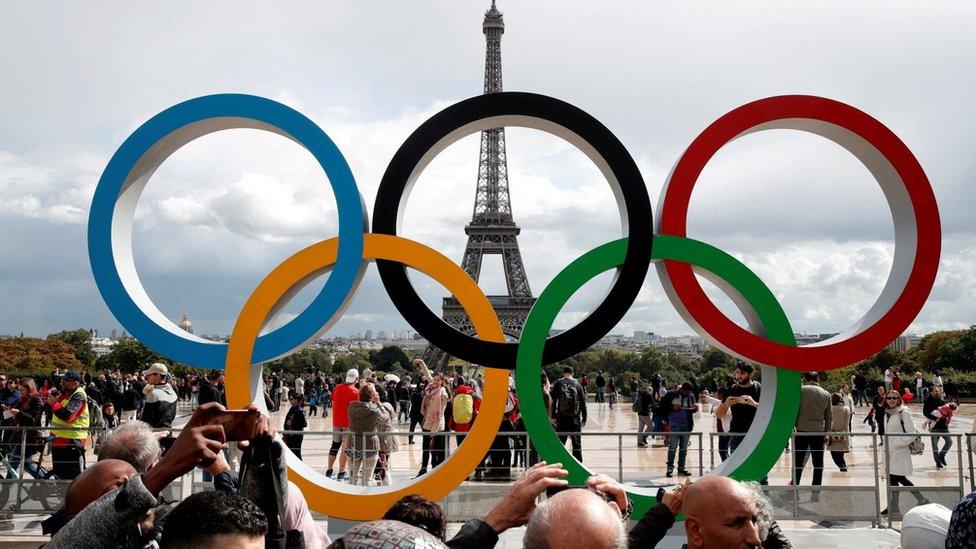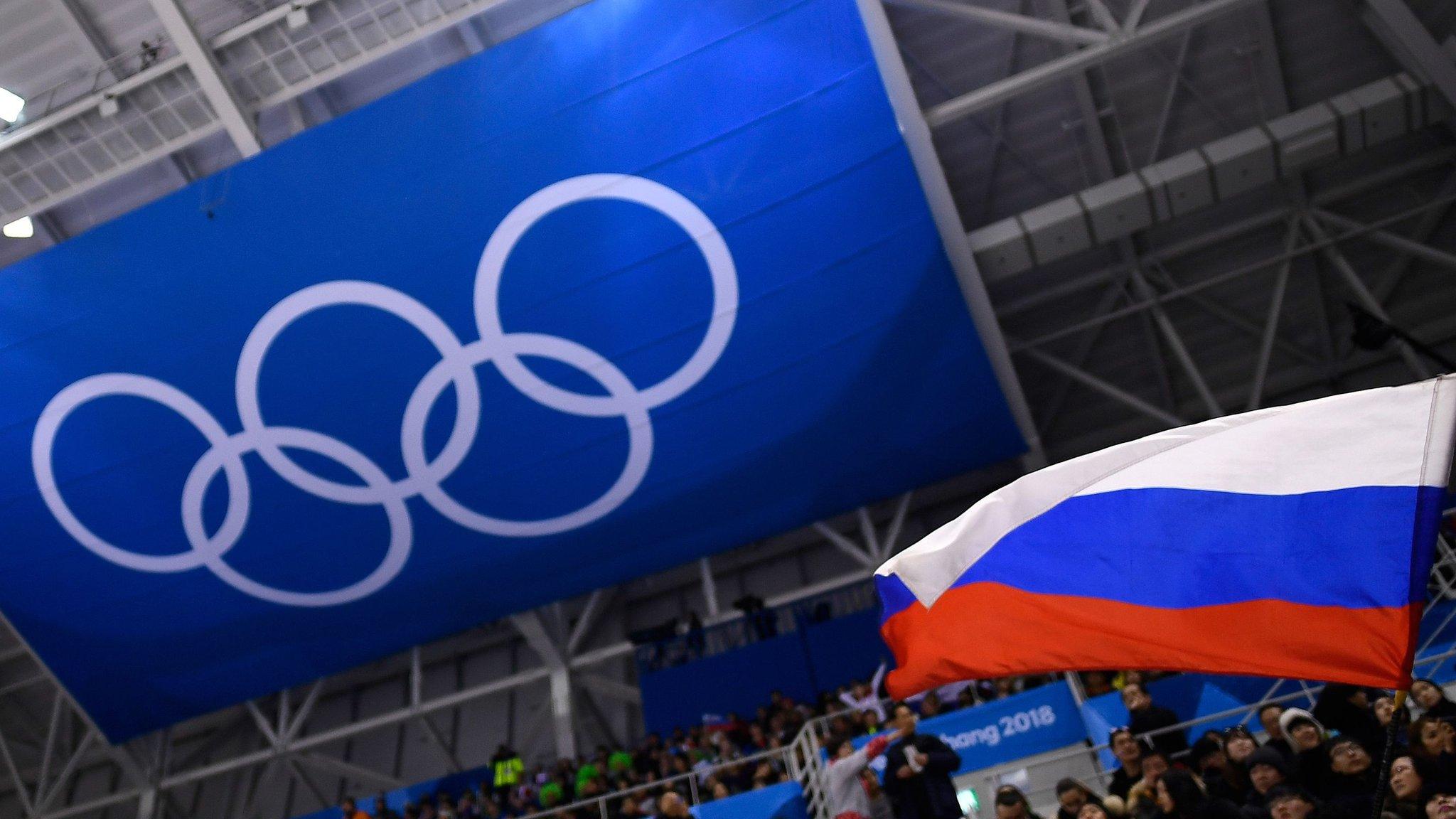Paris 2024 Olympics: IOC boss defends move to allow Russians and Belarusians to compete as neutrals
- Published

The 2024 Summer Olympics will open in Paris on 26 July and close on 11 August
The International Olympic Committee (IOC) head, Thomas Bach, has defended a decision to allow Russian and Belarusian athletes to compete at the 2024 Paris Olympics as neutrals.
"Individual athletes cannot be punished for the acts of their governments," he said at a forum in Geneva, Switzerland.
Russia invaded Ukraine in 2022.
This was, he said, "one war among 28 wars and conflicts going on this world and all the other athletes are competing peacefully with each other".
Last week, the IOC said individual athletes from Russia and and its ally Belarus who had qualified for the Paris summer games would be allowed to compete without flags, emblems or anthems of their countries.
The athletes had been earlier barred from taking part. That ban remains in force for teams representing the two nations.
The IOC added that athletes and support personnel who actively supported Russia's full-scale invasion of Ukraine must remain excluded.
It also reaffirmed its commitment to supporting Ukrainian athletes "in every way possible, in order to see a strong team from the National Olympic Committee of Ukraine at the Olympic Games Paris 2024".
Mr Bach was speaking exclusively to the BBC at the UN Global Refugee Forum in Geneva on Wednesday.
Olympic sports federations had asked the IOC to allow Russian and Belarusian athletes to compete but with no affiliation to their nations.
This was despite a number of countries - including the US and UK - calling for an all-out ban amid the ongoing war in Ukraine.
Ukraine itself suggested it might boycott the games, with President Volodomyr Zelensky saying Russian athletes "cannot be covered up with some pretended neutrality."
Mr Bach dismissed the threats of a boycott, saying countries that disagree "are allowed to have different political opinions".
The president of the IOC was one of the speakers at the forum's discussion on how sport can help refugees.
He announced a joint-pledge on behalf of the Sport for Refugees Coalition of $45m (£36m) to help half a million refugees, of which $15m (£11.8m) will come from the IOC to fund a number of projects, such as supporting the refugee Olympic team at Paris 2024.
Other ongoing conflicts include Israel's war with Hamas in Gaza and civil wars in Sudan and Myanmar.
Additional reporting by Jannat Jalil, BBC News.
Related topics
- Attribution
- Published8 December 2023

- Attribution
- Published12 October 2023
